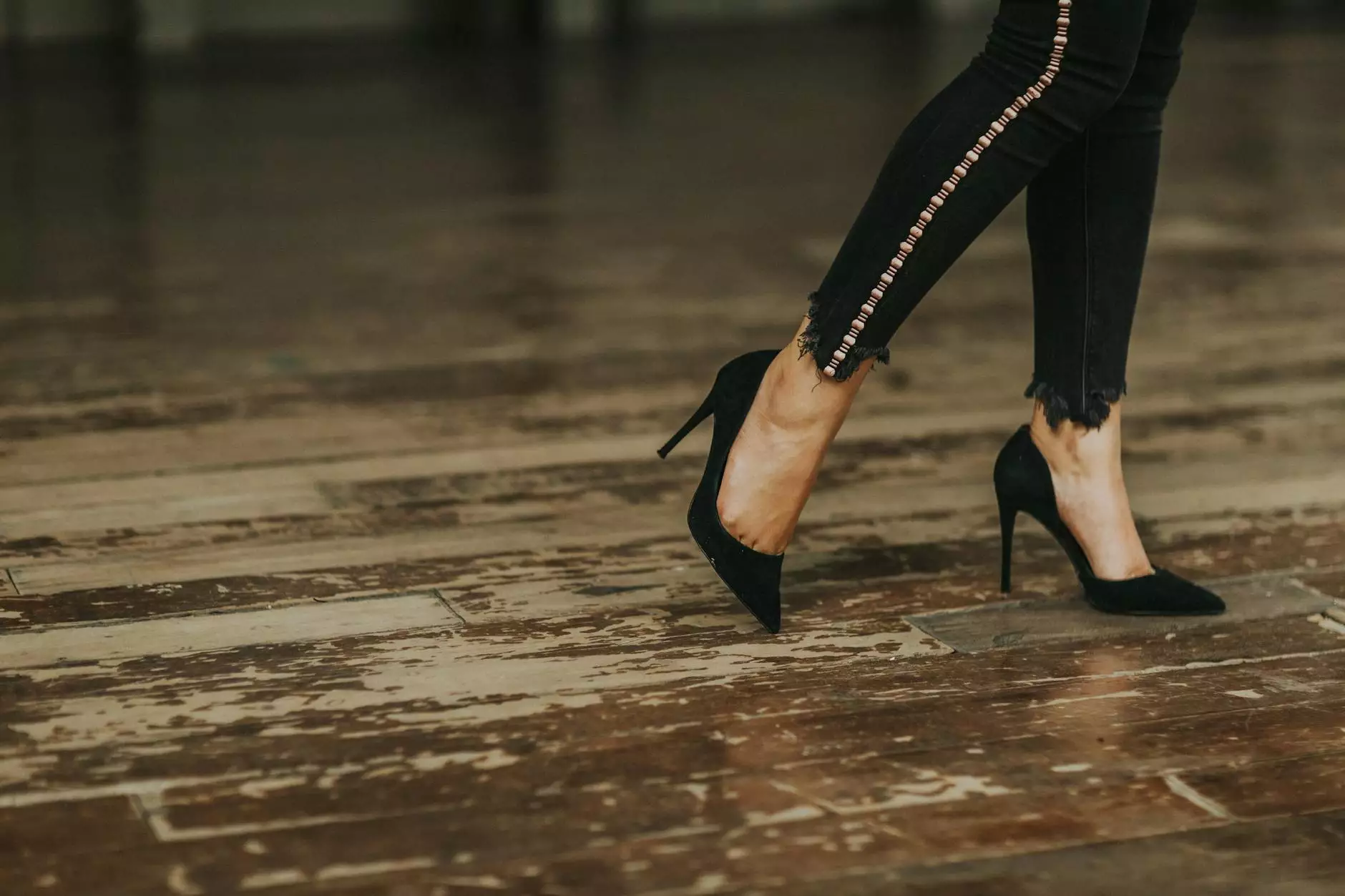Shoe Advice: The Ultimate Guide to Foot Health and Comfort

Choosing the right shoes is more than just a matter of style; it's a fundamental aspect of our overall health and well-being. With the average person spending a significant portion of their day on their feet, the right shoe advice can help prevent foot problems and enhance your quality of life. This article delves into the intricate relationship between footwear and foot health, providing you with comprehensive insights and practical tips.
Understanding the Importance of Proper Footwear
The right shoes can make a world of difference. They play a critical role in maintaining correct posture, supporting mobility, and preventing foot injuries. Here's why proper footwear is paramount:
- Prevention of Injuries: Ill-fitting shoes can lead to injuries such as blisters, bunions, and plantar fasciitis.
- Enhanced Comfort: Shoes designed for your foot type provide comfort and support throughout the day.
- Improved Performance: Athletes require footwear that caters to their specific sport to improve performance and reduce the risk of injury.
- Health Management: Individuals with diabetes or arthritis may need specialized shoes to manage their conditions effectively.
Identifying Your Foot Type
Understanding your foot type is crucial in selecting the right footwear. Here are the main foot types and their characteristics:
1. Neutral Feet
People with neutral feet have a moderate arch and distribute weight evenly across the foot. They can wear a variety of shoes but should opt for options with good cushioning.
2. Flat Feet
Flat feet lack a significant arch, often leading to overpronation. Individuals with flat feet should seek shoes that provide ample arch support and stability.
3. High-Arched Feet
Those with high arches typically underpronate, leading to a higher risk of stress fractures. They should select cushioned shoes that absorb shock effectively.
Key Elements of Shoe Advice
When it comes to selecting shoes, certain elements should be taken into account. Here’s a detailed look at these critical factors:
1. Fit is Fundamental
The most important aspect of shoe advice is ensuring that shoes fit well. An improper fit can lead to numerous foot issues. Here are tips for achieving the perfect fit:
- Measure your feet regularly, especially if you're experiencing changes in size or shape.
- Try shoes on later in the day when your feet are slightly swollen.
- Include enough toe space by ensuring your toes don't pinch or press against the shoe.
- Walk around in the shoes to assess comfort and adjustability.
2. Shoe Construction & Material
The construction and materials used in shoes significantly influence their performance and comfort. Here are some considerations:
- Breathable Materials: Choose shoes made from materials that allow your feet to breathe, such as mesh or canvas.
- Supportive Soles: Look for shoes with cushioned insoles and supportive outsoles that align with your foot type.
- Lightweight Design: Heavier shoes can lead to fatigue over time. Opt for lightweight options for everyday wear.
3. Specialized Footwear for Different Activities
Different activities require different types of shoes. Here’s a breakdown of footwear by activity:
- Running: Look for lightweight running shoes with good arch support and shock absorption.
- Walking: Walking shoes should focus on comfort and cushioning for prolonged use.
- Sports: Each sport has specific requirements. For instance, basketball shoes offer ankle support, while soccer cleats provide traction on grass.
- Casual Wear: Everyday shoes should offer versatility with adequate comfort and stylish appeal.
Foot Care Tips for Maintaining Healthy Feet
In addition to selecting the right shoes, maintaining foot health is essential. Here are some recommendations:
1. Regular Foot Inspections
Check your feet regularly for signs of problems. Look for:
- Redness or swelling
- Bumps, blisters, or sores
- Changes in skin texture or color
2. Stay Hydrated and Maintain a Balanced Diet
Hydration and nutrition significantly affect overall skin and joint health, including your feet. Ensure you drink plenty of water and consume a diet rich in:
- Fruits and vegetables
- Whole grains
- Healthy fats
3. Schedule Regular Foot Checkups
Regular visits to a podiatrist can help in identifying problems early. If you experience any persistent foot pain, consult a professional.
Common Foot Problems and Their Solutions
Foot problems can be common, especially if the right shoe advice is not followed. Here are some common foot issues and potential solutions:
1. Plantar Fasciitis
This condition occurs due to inflammation of the plantar fascia. Recommended shoe advice includes:
- Wearing shoes with good arch support and cushioning.
- Using orthotic inserts as prescribed by a podiatrist.
- Engaging in calf stretches to relieve tension.
2. Bunions
Bunions are painful, bony protrusions at the base of the big toe. To alleviate pain:
- Wear roomier shoes with a wide toe box.
- Avoid pointed-toe shoes that constrict the feet.
- Consider bunion pads for immediate relief.
3. Corns and Calluses
These are thickened areas of skin caused by excessive friction. Solutions include:
- Using moisturizer to soften the skin.
- Wearing cushioned insoles to reduce pressure.
- Frequent foot baths to keep skin soft and pliable.
Finding the Right Shoe Store
Shopping for shoes can be overwhelming, but choosing the right store can enhance your experience. Here are tips on what to look for:
- Knowledgeable Staff: Look for stores where staff are trained to assess foot types and provide tailored advice.
- Diverse Selection: Choose retailers that offer a variety of brands and styles to suit different needs.
- Comfortable Environment: A store that allows you to try on and walk in shoes increases your chances of finding the right fit.
Embracing Fashion with Functionality
In today’s world, there's no need to sacrifice style for comfort. Here are some trends that incorporate both:
- Orthopedic Fashion: Brands are now offering stylish orthopedic shoes that provide support without compromising on aesthetics.
- Customizable Footwear: Look for shoes that allow customizing insoles to cater to your comfort.
- Eco-friendly Options: Sustainable brands are emerging, providing fashionable yet responsible footwear solutions.
Conclusion: Invest in Your Foot Health
Your feet are the foundation of your body, supporting your every step. By leveraging expert shoe advice, prioritizing comfort, and selecting the right footwear, you can maintain optimal foot health. Remember that investing in quality shoes is a proactive step toward a healthier lifestyle. With the right knowledge, you can make informed decisions and enjoy every moment on your feet!
For more specific foot care needs and professional guidance, consider visiting The Foot Practice, where you can find expert advice tailored to your personal foot health journey.









